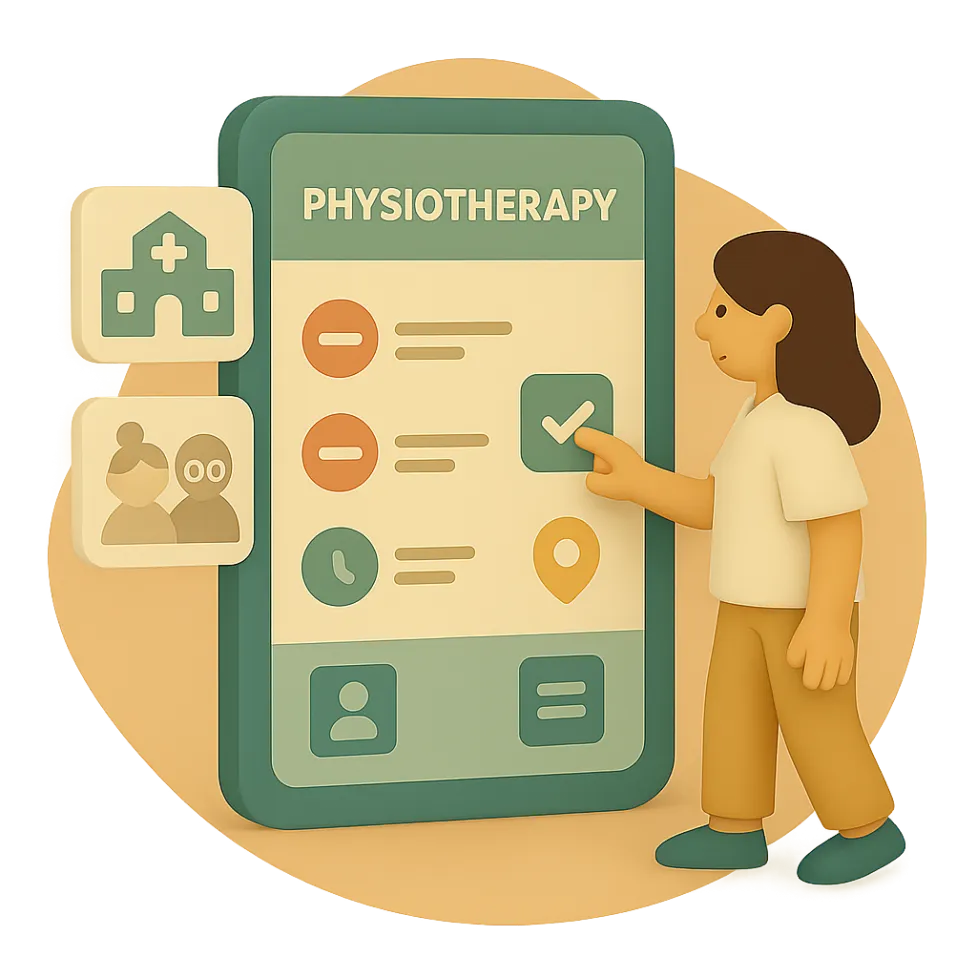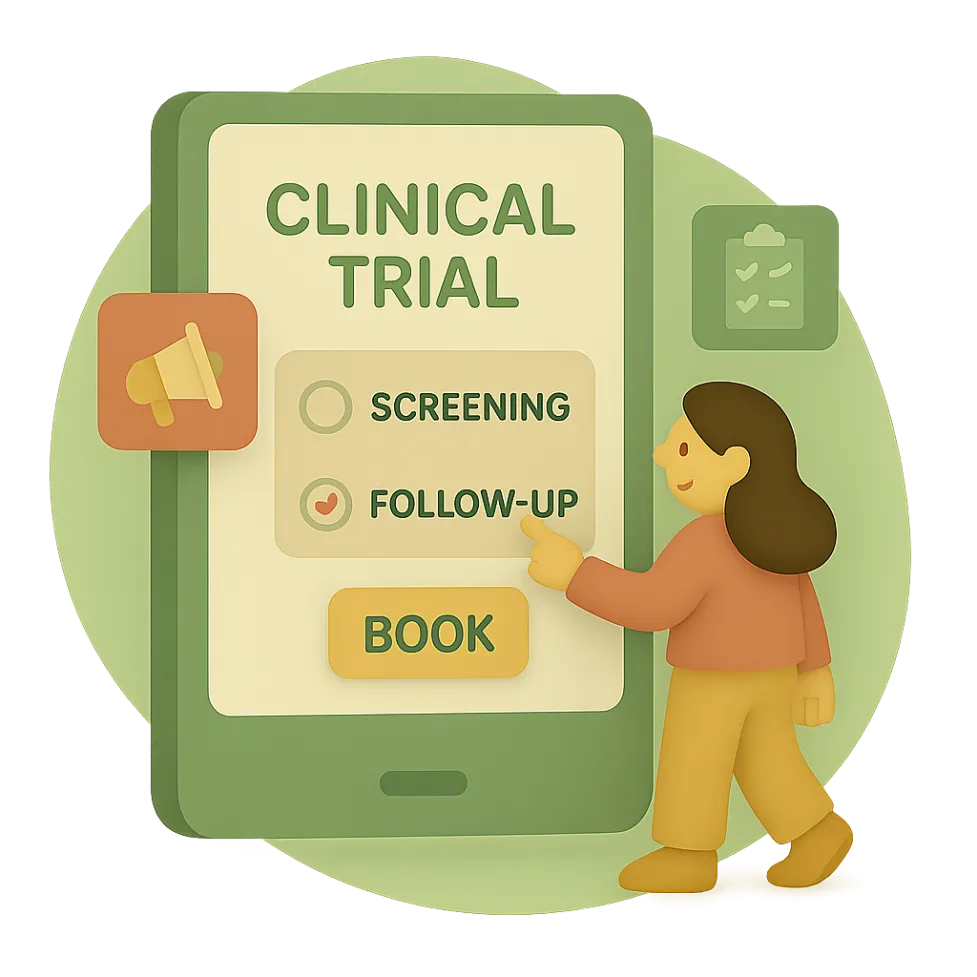
Introduction
In the healthcare industry, time and trust are everything. From routine check-ups and chronic disease follow-ups to corporate wellness screenings and Priority Consultations, managing appointments is at the core of effective care. But many providers struggle with missed appointments, scheduling conflicts, and logistical chaos.
Studies show this isn’t a rare problem — across outpatient clinics, the average no-show rate can reach ~23 % (Greenup & Best, 2025). In one multi-specialty clinic, nearly 9 % of booked slots went unfilled, while over 20 % were cancelled in advance (D'Silva & Popatia, 2025). Meanwhile, in Scotland, missed care for patients with long-term conditions was statistically linked to increased mortality risk (McQueenie et al., 2019).
As complexity grows — with specialists, on-site corporate services, and priority-level patients — traditional scheduling tools often can’t keep up. You get overlapping bookings, wasted capacity, and frustrated patients.
That’s where TIMIFY Smart Links come in. By giving healthcare providers full control over who can book, when, and under what conditions, it becomes possible to balance high-volume routine scheduling and exclusive Personalized Care Sessions or corporate sessions — all while reducing administrative burden and restoring patient trust.
Let’s take a closer look at the most common scheduling challenges clinics face — and how TIMIFY Smart Links provide clear, practical solutions to handle them.
Challenge 1: Corporate Health Contracts
Problem: Many clinics partner with companies to provide on-site health services like annual employee screenings, vaccinations, or wellness programs. A systematic review on workplace cancer screening interventions shows how important these partnerships are, as it found that participation rates increase significantly when screenings are offered directly at the workplace (Mon et al., 2024).
These sessions must run alongside the clinic’s regular appointments, yet the time slots need to be reserved exclusively for the employees of that company. Without an advanced appointment scheduling solution, HR teams and admins spend endless hours trying to manage appointments, block calendars, and prevent overlaps.
Smart Links Solution: Clinics can create a dedicated booking page just for a corporate client. Only employees with the private link can book appointments, keeping these appointment slots hidden from public availability. This ensures doctors and consultants are assigned correctly to the right room and prevents double-bookings. The result: smoother workflows, a professional booking process, and higher trust with corporate partners.

Example: Imagine a clinic partnering with a tech company to deliver an on-site flu vaccination day. Instead of manually collecting names by email or phone, the clinic simply shares a Smart Link. Employees see only the dedicated time slots set aside for their workplace and can self-schedule instantly. Any unfilled slots can later be released back into the general booking system, ensuring maximum efficiency without wasted capacity.
Challenge 2: External Specialists Serving Retirement Homes and Clinics
Problem: Many healthcare and wellness professionals — such as physiotherapists, occupational therapists, or massage therapists — are not employed directly by elderly homes or clinics, but are invited to provide on-site sessions for residents and patients. Bookings may come either from the facility’s doctors, who arrange care for their clients, or directly from residents and their families.
The challenge is that these professionals must juggle their regular clinic or practice appointments with dedicated on-site visits. Without a structured scheduling system, this leads to overlapping bookings, confusion over available appointment slots, and wasted admin time.
Smart Links Solution: With TIMIFY Smart Links, external specialists can set up exclusive booking pages for each elderly home or clinic they serve. These booking pages only show the dedicated time slots reserved for that location, keeping them hidden from their public schedule. At the same time, their general patient calendar remains separate and protected from conflicts. By adding automatic reminders and the option to reschedule appointments, both patients and facilities enjoy a smooth, reliable booking experience — while specialists can confidently balance their on-site sessions with their own practice schedules.

Example: A physiotherapist who runs her own practice also spends Tuesday afternoons at a local retirement home. With Smart Links, she sets up a private booking link shared only with that facility. Residents and their families can book appointments within the Tuesday slots, while her public clinic patients see only her regular availability. If a slot remains unfilled, she can reschedule appointments or release it back into her general calendar, ensuring her time is never wasted.
Is Smart Links right for you?
If you are interested in finding out what more Smart Links can do for you, we have some additional information here.
Challenge 3: Premium or Private Insurance Clients
Problem: In many markets, patients with private insurance expect fast booking, shorter wait times, and a more personalised experience. Research supports these expectations. Yet without a controlled appointment system, these patients often compete with the general customer base for the same slots. This leads to frustration, churn, and damage to the clinic’s reputation. A study by Setyawan et al. (2020) found a strong correlation between patient satisfaction and loyalty in private healthcare centers (r = 0.767), compared to only a moderate correlation in public centers (r = 0.54). This means that private patients are far more likely to remain loyal only if their expectations around convenience and personalised care are met. For clinics, failing to provide a smooth and exclusive booking process risks not just dissatisfaction, but also losing valuable private clients.
Smart Links Solution: Practices and Health Care Centers can design a booking page reserved for private patients. This allows clinics to accept bookings only from this group, with special appointment slots and custom fields (such as insurance ID). By using a compliant scheduling software with staff logins, practices maintain data security while offering premium appointment software experiences.
Another powerful feature is Automatic Slot Release. If a reserved priority slot is not booked by a set deadline, Smart Links can automatically release it back into the general booking system. This ensures clinics don’t waste valuable appointment slots and can keep their calendars fully utilised. For private patients, this guarantees dedicated availability without blocking access for others unnecessarily — helping practices strike the perfect balance between exclusivity and efficiency.

Example: A private and public dermatology clinic reserves Friday afternoons for premium insurance patients. Instead of manually screening calls or emails, the clinic shares a Smart Link only with these clients. They can instantly book appointments within the protected time slots, while public patients don’t even see this availability. If a slot remains unbooked, Smart Links’ Automatic Slot Release feature automatically returns it to the general calendar. This ensures that calendars remain fully utilised, while premium patients still enjoy the exclusivity they expect.
Challenge 4: Clinical Trials and Research Projects
Problem: Clinical trials require exceptionally precise scheduling — from initial screening and consent visits to regular check-ups and final follow-ups. Often, research centers promote their studies through advertisements in newspapers, online portals, or social media. Interested participants register, but the real challenge is identifying eligible candidates, assigning them the right time slots, and keeping capacity fully utilized. Without a smart system, study coordinators spend countless hours managing spreadsheets, sending reminders manually, and trying to avoid scheduling conflicts. Even small inefficiencies can affect data quality or delay the study timeline.
Smart Links Solution: With TIMIFY Smart Links, exclusive booking pages can be created for each study phase. Once participants register via an advertisement and are confirmed as eligible, they receive a private link to book their initial appointment. They see only the time slots relevant to their screening or study group. For follow-up visits such as check-ups, lab tests, or consultations, additional Smart Links can be sent automatically, ensuring the entire study process remains structured and transparent.

Example: A research center recruits participants for a diabetes study via online ads. After registering, eligible participants receive a Smart Link for their first screening. Once they complete the visit, they automatically receive further links for follow-up appointments every three months. This ensures that all participants follow the correct visit sequence, while the study center maintains full oversight of resources and capacity utilization.
Benefits of TIMIFY Smart Links in Healthcare
By using Smart Links, healthcare providers can:
- Reduce no shows through automated reminders and intake forms.
- Keep appointments organised with one central appointment scheduling system.
- Assign the right team and staff management roles with attributes.
- Enable online scheduling through their website, making it easier for patients to book appointments.
Ultimately, Smart Links allow clinics to run a user friendly, scalable scheduling process. Whether handling clients from corporate contracts, chronic patient groups, or private insurance networks, Smart Links help practices integrate their resources, improve patient trust, and offer more structured healthcare solutions.
Conclusion
In modern healthcare, appointments aren’t just about time management—they’re about patient trust, satisfaction, and operational efficiency. Smart Links give clinics and healthcare professionals full control over who can book, when, and under what conditions, all within a HIPAA compliant environment. From corporate health contracts to chronic patient care and private insurance appointments, this smart scheduling software makes it simple to balance daily business with exclusive services.
Take Control of Online Scheduling
Start offering smarter, more structured appointments today with TIMIFY Smart Links.
Frequently Asked Questions (FAQs)
What are Smart Links in healthcare scheduling?
Can Smart Links be used for corporate health programs?
Are Smart Links suitable for external specialists visiting multiple locations?
How can Smart Links help reduce missed appointments in clinics?
Can I group Smart Links by client or use case?
Is TIMIFY Smart Links HIPAA compliant for healthcare use?

About the author
Lukas Alberter
Lukas embarked on his professional journey after earning a Bachelor and Master's degree in Learning Sciences and Educational Research and Management at Ludwig-Maximilians-Universität München. With hands-on experience across HR, recruitment, and educational roles—from tutoring to shaping hiring and organizational strategy at Limehome and Diakonie Rosenheim—he joined TIMIFY in a People & Culture capacity, where he now thrives as P&C Manager. Blending his academic background in learning systems with real-world HR initiatives, Lukas is dedicated to crafting an enriched workplace culture and employee experience at TIMIFY.
Related articles



